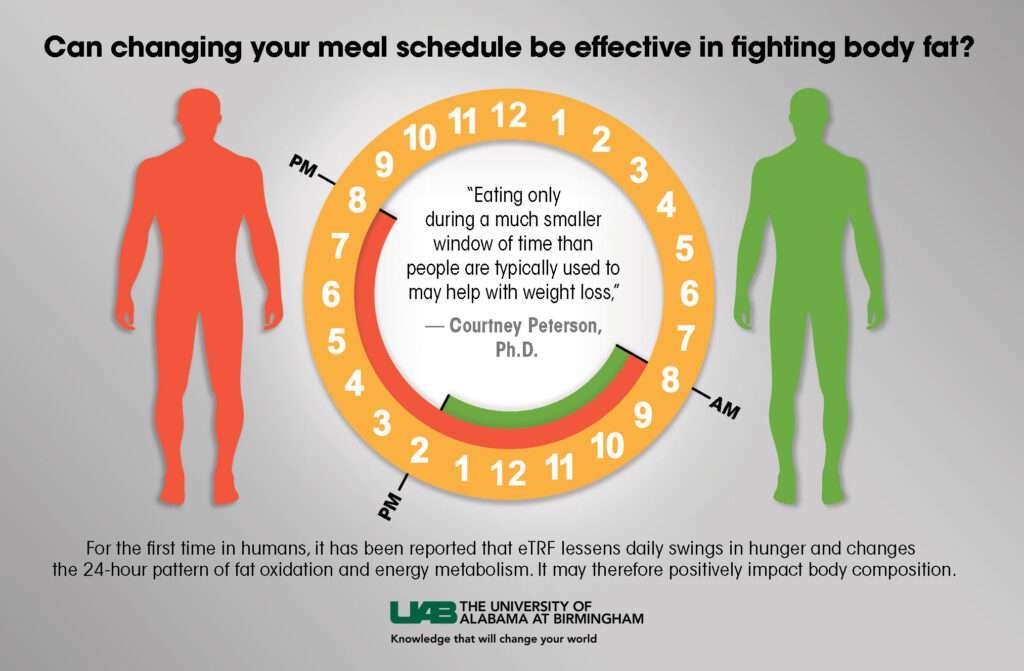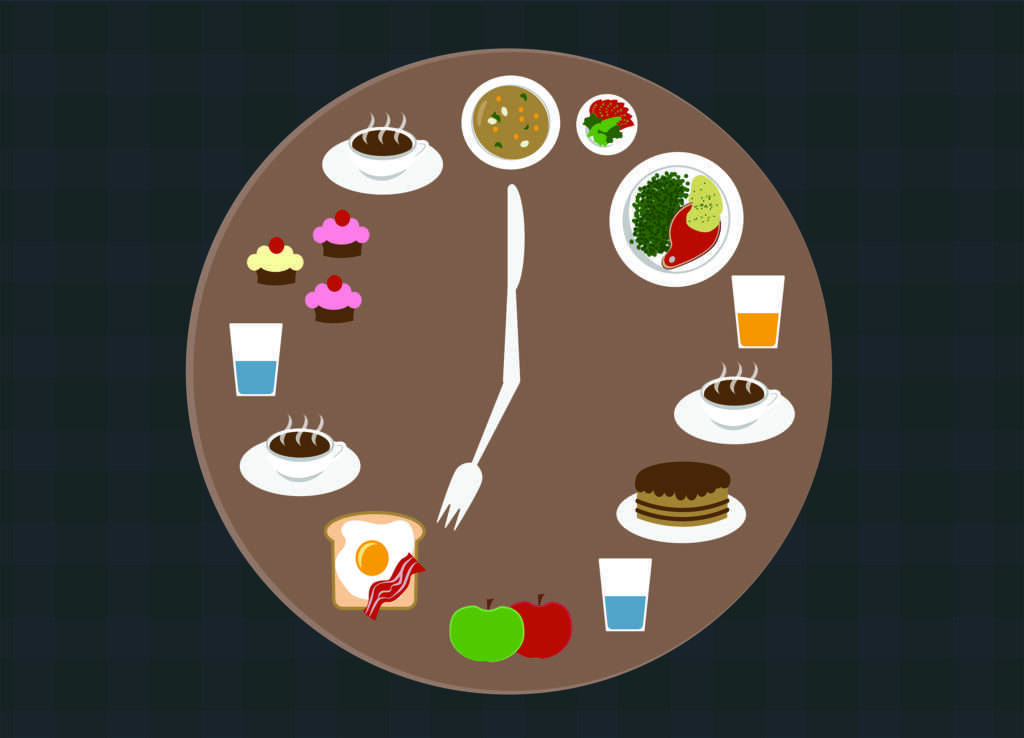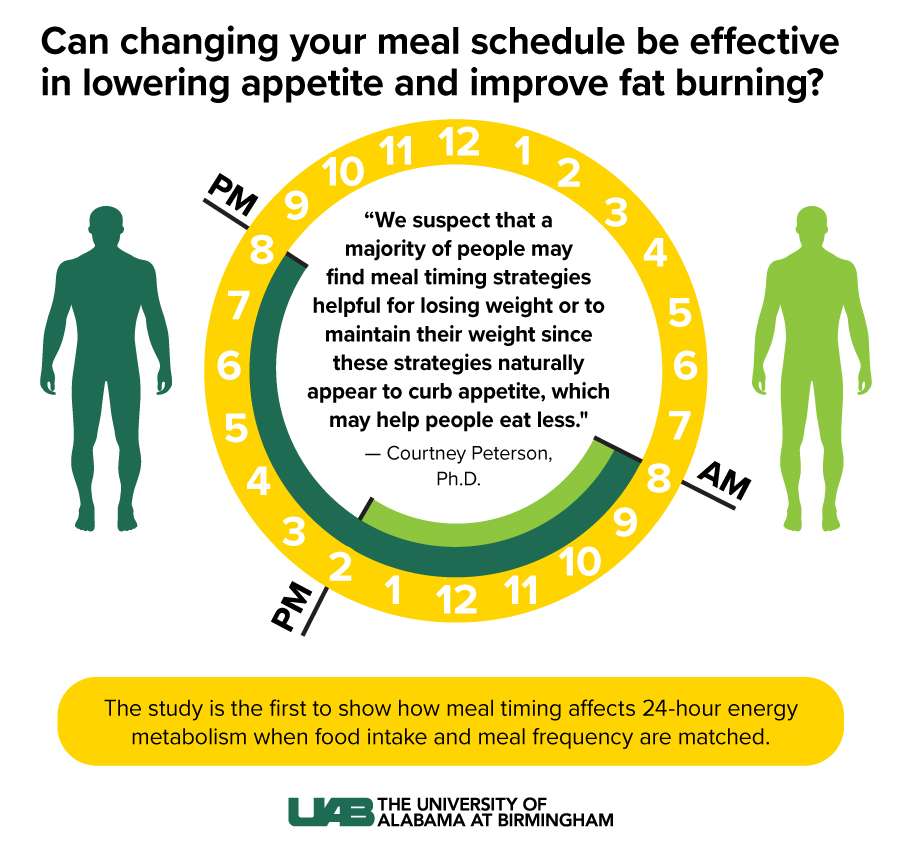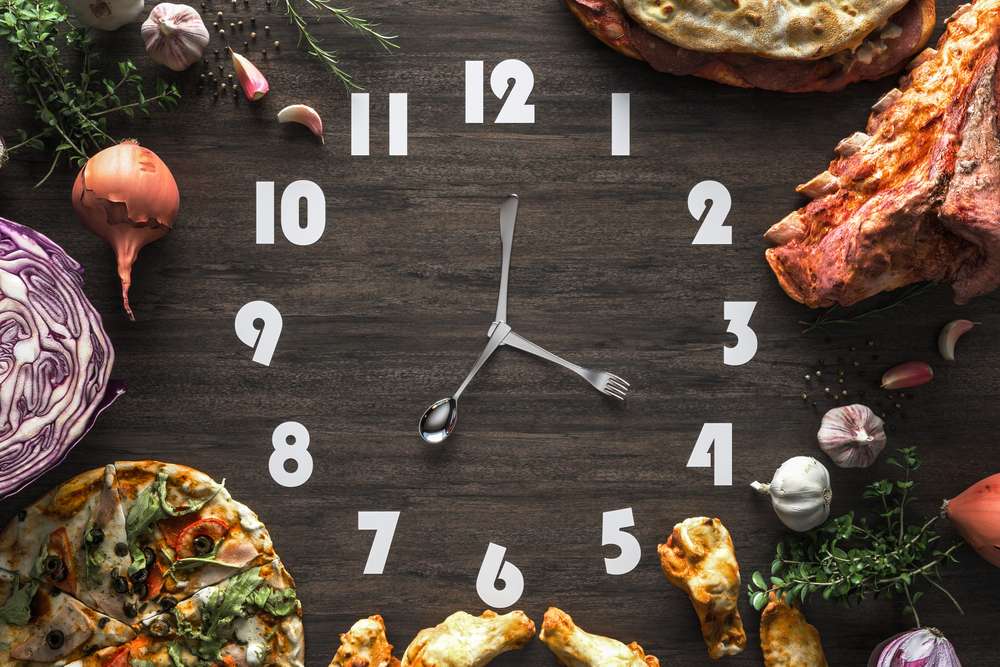So, you’re trying to shed a few pounds and you’ve heard all sorts of theories about the best time to eat for weight loss. Well, let me tell you, this is a hot topic that many people are curious about. The idea is that our bodies have an internal clock that regulates various processes, including metabolism and digestion. Some experts believe that eating at certain times of the day can optimize these processes and potentially enhance weight loss. But is there any truth to it? Well, stick around because I’m going to delve into this topic and give you all the details.
Now, I know you’re probably wondering if there’s a magic hour for eating that can make those extra pounds melt away. Unfortunately, it’s not that simple. There is some evidence to suggest that the timing of our meals can indeed influence weight loss, but it’s not the only factor to consider. The quality and quantity of the food we consume are equally important. And let’s not forget about physical activity, sleep, and overall lifestyle habits. It’s all about finding the right balance. So, in this article, we’ll dive deeper into the research and explore how timing, along with other factors, can impact your weight loss journey.
So, here’s the bottom line – while the time you eat may have some influence on weight loss, it’s not the sole determinant. It’s more about finding what works best for you and your lifestyle. Some people find that eating breakfast helps kickstart their metabolism and helps them control their hunger throughout the day. Others swear by intermittent fasting, where they limit their eating window to certain hours of the day. The key is to listen to your body, pay attention to cues of hunger and fullness, and make mindful choices about the types and quantities of food you consume. And remember, consistency is key. So, let’s dig deeper into the research and uncover more tips and tricks for successful weight loss.

Understanding the Relationship Between Eating Time and Weight Loss
When it comes to weight loss, many factors come into play, including diet, exercise, and lifestyle choices. However, one aspect that often goes overlooked is the timing of our meals. Research suggests that the time we eat can have a significant impact on our weight loss journey. In this article, we will delve into the relationship between eating time and weight loss, exploring the effects of meal timing, the science behind it, and the strategies for optimizing meal timing to aid in weight loss.
Exploring the Impact of Meal Timing on Weight Loss
Meal timing refers to the specific hours of the day when we consume our meals. It encompasses both the timing of our main meals, such as breakfast, lunch, and dinner, as well as any snacks or additional eating occasions throughout the day. The meal timing pattern can vary greatly among individuals due to personal preferences, cultural norms, and lifestyle factors.
Examining the Effects of Meal Frequency on Weight Loss
The frequency of our meals, or how often we eat throughout the day, is another important aspect to consider. Traditional eating patterns typically involve three main meals (breakfast, lunch, and dinner) with a few snacks in between. However, recent trends such as intermittent fasting and time-restricted eating (TRE) have gained popularity, advocating for fewer eating occasions within a specified time window.
Analyzing the Role of Circadian Rhythm in Weight Management
Our body’s internal clock, also known as the circadian rhythm, plays a crucial role in regulating our sleep-wake cycle, hormone production, and metabolism. Emerging evidence suggests that the timing of our meals should align with our circadian rhythm to optimize weight management. Disruptions in our circadian rhythm, such as irregular eating patterns or late-night eating, can have negative effects on our weight loss efforts.
The Science Behind Meal Timing and Weight Loss
To understand why meal timing affects weight loss, it is essential to explore the scientific mechanisms at play.
The Role of Metabolism in Weight Loss
Metabolism is the process by which our bodies convert food into energy. It encompasses various chemical reactions that occur within our cells, ultimately determining the rate at which we burn calories. Our metabolic rate can be influenced by several factors, including meal timing.
Research suggests that our metabolism follows a natural daily rhythm, with the highest calorie burning occurring during the daytime and gradually tapering off at night. This metabolic pattern aligns with our circadian rhythm and supports the notion that eating earlier in the day may be more beneficial for weight loss.
How Meal Timing Affects Insulin Levels
Insulin, a hormone produced by the pancreas, plays a key role in regulating blood sugar levels and storing excess energy as fat. When we consume a meal, our blood sugar levels rise, prompting the release of insulin to help transport glucose from the bloodstream into our cells for energy.
Studies have shown that the body’s insulin response to food is more efficient earlier in the day. Eating later in the evening, especially high-calorie or carbohydrate-rich meals, can lead to a higher insulin response. This increased insulin secretion may promote fat storage rather than utilize existing fat stores for energy.
The Impact of Meal Timing on Hormonal Regulation
In addition to insulin, other hormones involved in hunger and satiety regulation also play a role in the relationship between meal timing and weight loss. Ghrelin, known as the hunger hormone, increases before meals to stimulate appetite, while leptin, the satiety hormone, signals fullness and decreases hunger.
Research suggests that meal timing can influence the production and secretion of these hormones. Eating earlier in the day has been associated with a more balanced hormonal response, leading to better appetite control and potentially reducing overall calorie intake.

Factors to Consider When Determining the Best Eating Time for Weight Loss
As with any dietary recommendation, individual variations and personal circumstances must be taken into account when determining the best eating time for weight loss.
Individual Variations in Meal Timing Preferences
People have different biological rhythms and preferences when it comes to meal timing. Some individuals naturally have a higher appetite in the morning and prefer to consume a larger breakfast, while others may find it more challenging to eat early in the day and prefer a larger meal later. It is essential to listen to your body’s hunger and satiety cues and find a meal timing pattern that works best for you.
Considering Personal Lifestyle and Schedule
While our circadian rhythm provides a framework for optimal meal timing, real-life commitments and schedules often impact when and how we eat. Work, family obligations, and social activities can influence our meal timing choices. It’s important to find a balance that aligns with your lifestyle while still prioritizing the health benefits of appropriate meal timing.
Understanding the Importance of Consistency in Eating Patterns
Consistency is key when it comes to meal timing and weight loss. Establishing a regular eating schedule can help regulate our body’s internal clock and optimize the metabolic processes associated with weight management. Irregular eating patterns, such as skipping meals or eating sporadically, can disrupt our circadian rhythm and lead to weight gain or difficulty in losing weight.
Benefits of Eating Earlier in the Day for Weight Loss
While individual preferences and lifestyles may vary, there are several notable benefits to consider when it comes to eating earlier in the day for weight loss.
Boosting Metabolism and Energy Expenditure
Eating earlier in the day can boost our metabolism and increase energy expenditure. Studies have shown that the thermic effect of food, which refers to the increase in calorie burning after consuming a meal, is higher in the morning compared to the evening. This means that our bodies burn more calories processing food consumed earlier in the day, potentially aiding in weight loss.
Improving Digestion and Nutrient Absorption
Our digestive system follows a natural rhythm, with peak digestive enzyme activity occurring during the day. By consuming our meals earlier, we can align our eating patterns with our body’s natural digestive processes, leading to better digestion and improved nutrient absorption. This can be particularly beneficial for weight loss, as proper digestion and nutrient utilization can support overall metabolic functioning.
Enhancing Sleep Quality and Weight Regulation
Eating late at night can disrupt our sleep patterns, leading to poor sleep quality and potentially affecting weight regulation. Research has shown that late-night eating, especially large and heavy meals, can interfere with our body’s sleep-wake cycle and melatonin production. Melatonin, a hormone that helps regulate sleep, also plays a role in metabolism and weight management. By shifting our meal timing earlier in the day, we can promote better sleep quality and improve overall weight regulation.

Potential Drawbacks of Late-Night Eating for Weight Loss
While there are benefits to eating earlier in the day, late-night eating can have negative implications for weight loss.
Slower Metabolism and Reduced Calorie Burn
Our metabolic rate tends to naturally decrease in the evening, as our bodies prepare for sleep and restfulness. When we consume a meal later in the day, our metabolic rate may be slower, leading to reduced calorie burn. Additionally, late-night meals are more likely to be stored as fat rather than used as immediate energy due to decreased physical activity during sleep.
Increased Risk of Insulin Resistance
Eating late at night, especially meals high in refined carbohydrates or sugars, can increase the risk of developing insulin resistance. Insulin resistance occurs when our body’s cells become less responsive to the hormone insulin, resulting in higher blood sugar levels and increased fat storage. Regular consumption of late-night meals can disrupt our body’s natural insulin regulation, potentially hindering weight loss efforts.
Negative Impact on Sleep Quality and Weight Management
Late-night eating can disrupt our sleep quality, which, in turn, can negatively impact weight management. Poor sleep has been linked to increased appetite, cravings for high-calorie foods, and difficulty in regulating hunger hormones. By avoiding late-night meals and allowing our bodies ample time between eating and sleep, we can optimize our sleep and support our weight loss goals.
Strategies for Optimizing Meal Timing to Aid Weight Loss
Now that we understand the science and potential benefits of meal timing for weight loss, let’s explore some strategies for optimizing our eating patterns.
Implementing Time-Restricted Eating (TRE)
Time-restricted eating involves limiting the daily eating window to a specific number of hours, typically between 8-12 hours. For example, you might choose to eat all your meals and snacks between 8 am and 6 pm, and then fast for the remaining 14 hours until breakfast the next day. This approach can help promote metabolic efficiency and better align with our circadian rhythm.
Adopting Intermittent Fasting Techniques
Intermittent fasting (IF) involves alternating periods of fasting and eating within a specified time frame. There are various IF protocols, such as 16:8 (fasting for 16 hours and eating within an 8-hour window) or 5:2 (eating normally for 5 days and restricting calorie intake for 2 days). IF can help regulate calorie intake, improve insulin sensitivity, and support weight loss efforts.
Monitoring Portion Sizes and Food Choices
Regardless of the time you eat, portion control and food choices remain critical factors in weight loss. It’s essential to practice mindful eating, paying attention to hunger and satiety cues, and consume balanced meals rich in whole foods, lean proteins, fruits, vegetables, and healthy fats. By monitoring portion sizes and making healthier food choices, you can support your weight loss journey alongside optimized meal timing.

Exploring Other Factors Influencing Weight Loss Beyond Meal Timing
While meal timing is an important component of weight loss, it is essential to recognize that it is just one piece of the puzzle. Several other factors should be considered when striving for sustainable and successful weight loss.
Maintaining a Balanced and Nutrient-Dense Diet
Alongside appropriate meal timing, maintaining a balanced and nutrient-dense diet is essential for weight loss. A diet rich in whole foods, including fruits, vegetables, whole grains, lean proteins, and healthy fats, provides the necessary nutrients while keeping calorie intake in check. It is important to focus on long-term dietary habits rather than quick fixes or fad diets.
Incorporating Regular Physical Activity
Exercise plays a vital role in weight loss and overall health. Regular physical activity helps burn calories, build muscle, improve metabolic function, and enhance overall well-being. Aim for a combination of cardiovascular exercises, strength training, and flexibility activities to support your weight loss goals.
Managing Stress Levels and Emotional Eating
Stress, emotions, and psychological factors can significantly impact our dietary choices and weight management. Chronic stress can trigger emotional eating and cravings for comfort foods, leading to weight gain or difficulty in losing weight. It is essential to find healthy coping mechanisms for stress, such as exercise, meditation, or seeking support from loved ones or professionals. By managing stress levels and emotional eating, you can maintain a healthier relationship with food and support your weight loss efforts.
Common Myths and Misconceptions about Eating Time and Weight Loss
With any topic related to weight loss, certain myths and misconceptions tend to circulate. Let’s address a few of them to separate fact from fiction.
The Myth of the ‘Metabolic Window’
The concept of a ‘metabolic window’ suggests that consuming food immediately after exercise increases metabolic rate and enhances weight loss. However, current research indicates that the timing of post-exercise meals plays a minimal role in overall weight loss. It is more crucial to focus on overall calorie and nutrient intake rather than specific timing following exercise.
Addressing the Belief that ‘Late-Night Snacking Leads to Weight Gain’
While it is true that late-night snacking can have negative implications for weight loss, weight gain is not solely determined by the timing of your snacks. Your overall calorie intake and food choices throughout the day play a more significant role in weight management. However, avoiding late-night snacks or opting for healthier choices can still support your weight loss efforts.
Debunking the Notion of ‘Negative-Calorie Foods’
The idea of ‘negative-calorie foods’ suggests that certain foods require more energy to digest than they provide, resulting in a negative calorie balance. While certain low-calorie and high-fiber foods may have a minimal thermic effect, the concept of ‘negative-calorie foods’ is misleading. It is best to focus on a balanced and nutrient-dense diet rather than relying on the false promises of negative-calorie foods.

Real-Life Success Stories: Individuals Who Achieved Weight Loss Through Smart Meal Timing
To showcase the potential impact of smart meal timing on weight loss, let’s take a look at a few real-life success stories.
Case Study 1: Sarah’s Journey to Weight Loss with Intermittent Fasting
Sarah struggled with weight loss for years, trying various diets and exercise regimens without success. After researching the benefits of intermittent fasting, she decided to give it a try. By implementing a 16:8 fasting protocol and adjusting her meal timing to align with her circadian rhythm, Sarah noticed significant improvements in her weight, energy levels, and overall well-being. She credits smart meal timing as a crucial factor in her successful weight loss journey.
Case Study 2: John’s Transformation with Time-Restricted Eating
John, a busy professional with a sedentary lifestyle, found it challenging to lose weight despite multiple attempts. After reading about the benefits of time-restricted eating, he decided to experiment with a 10-hour eating window. By consuming his meals within a specific timeframe and allowing ample fasting periods, John experienced improved metabolism, reduced cravings, and gradual weight loss. The combination of time-restricted eating and portion control proved to be a winning strategy for him.
Case Study 3: Lisa’s Experience with Consistent Eating Patterns
Lisa, a working mother of two, struggled with weight fluctuation and poor energy levels. Determined to make a change, she focused on establishing consistent eating patterns throughout the day. By prioritizing regular meal times and paying attention to portion sizes, Lisa noticed positive changes in her weight, digestion, and overall well-being. Consistency in meal timing significantly contributed to her weight loss success.
Conclusion
The relationship between eating time and weight loss is a complex and multifaceted topic. While there is no one-size-fits-all approach, understanding the impact of meal timing on our metabolism, hormones, and overall weight management can provide valuable insights for our weight loss journey.
By considering factors such as individual variations, personal lifestyle choices, and the importance of consistency, we can optimize meal timing to support our weight loss goals. Incorporating strategies such as time-restricted eating, adopting intermittent fasting techniques, and monitoring portion sizes and food choices can further enhance our weight loss efforts.
However, it is crucial to remember that meal timing is just one aspect of a comprehensive weight loss plan. Maintaining a balanced and nutrient-dense diet, incorporating regular physical activity, and managing stress levels are equally essential components for long-term success.
In conclusion, by making informed decisions about when to eat and aligning our meal timing with our body’s natural rhythms, we can maximize our weight management efforts and strive for optimal health and well-being. So, take control of your eating time, listen to your body, and embark on a journey towards a healthier you.
